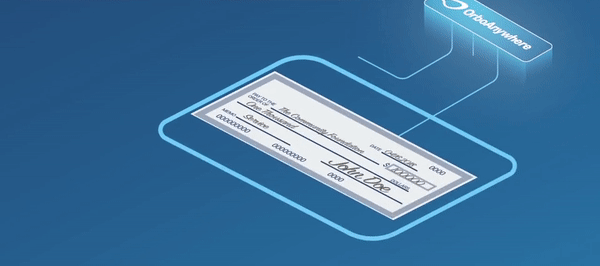CPA Advisory Firm Herbien Takes on Check Fraud in their Latest Podcast
- A new podcast episode explores check fraud
- Key elements of check fraud are examined
- Several best practices are recommended
#FraudFighters do not just work for financial institutions or fintechs; they come from all different types of financial services companies -- including accounting.
Case in point: Herbein -- a 50+ year old CPA advisory firm -- takes on the challenges of check fraud in the latest episode of The Herbein Podcast.
Host Debbi S. Fetter, Partner and Managing Director of Herebein's Risk Management practice, discusses with Jason M. Kline, Senior Manager in their Risk Management practice, the "age-old yet widely prevalent fraud topic, check fraud."
The podcast breaks down check fraud for the listener, going over several key elements that include different tactics used in schemes:

- Check washing
- Counterfeiting checks
- Stolen checks
- Deposit fraud via mRDC
- Business email compromise
When asked about the financial and operational consequences of check fraud, Mr. Kline notes:
Victims can suffer financial losses, delayed payments, damaged banking relationships and even regulatory scrutiny or credit damage if fraud is not reported and addressed properly.
How Businesses and Individuals Can Spot Check Fraud
While avid readers of our blog may see the information as rudimentary, we cannot take for granted Herbien's efforts to educate and equip their audience with the information needed to avoid becoming a victim.
On the banking side, there are many resources and training programs to help spot check fraud. However, businesses and individuals can spot "red flags" BEFORE a fraudulent check enters the system, including:
- Discrepancies in font or print quality -- counterfeit checks will often have subtle differences in comparison to a standard check.
- Altered check amounts or payees - the ink looks smudged or overwritten.
- Missing security features such as watermarks or microprinting, which you would typically see on a legitimate check.
- Unexpected check payments- businesses should verify all outgoing payments to ensure they are all legitimate.

Additionally, Mr. Kline notes several best practices for businesses and individuals such as:
- Using gel ink pens,
- Safely securing checks
- Monitoring accounts closely,
- Vigilance with regard to stolen mail
- Most importantly, using fraud detection tools available from your bank, including Positive Pay.
As noted previously, 65% of financial institutions have less than half of their treasury service clients using Positive Pay, and 39% have less than 25% adoption according to research from Alkami and Datos Insights.
Unfortunately, the research also points to several factors that are in the control of financial institutions regarding adoption of Positive Pay:
- FIs are only offering Positive Pay reactively – 42% of banks admit they only promote Positive Pay after fraud occurs.
- Unmotivated Sales Team – Sales teams are not offered bonuses for selling Positive Pay, nor do they have goals or mandates associated with it.
- Small to mid-size businesses (SMBs) don’t even know it exists – 23% of SMBs say their banks never even mentioned Positive Pay.
While we admit these numbers are discouraging, we see this as an opportunity for financial institutions. FIs should not only start selling Positive Pay proactively, but also consider "supercharging" their Positive Pay system, adding payee name verification, field validations, and image forensics to achieve the 95% detection rate goal.

Check fraud is no longer a battle FIs must fight alone. #FraudFighters include many different companies and individuals -- but, without the proper tools, technologies, and education/training, the fight will continue to be an uphill battle for all.